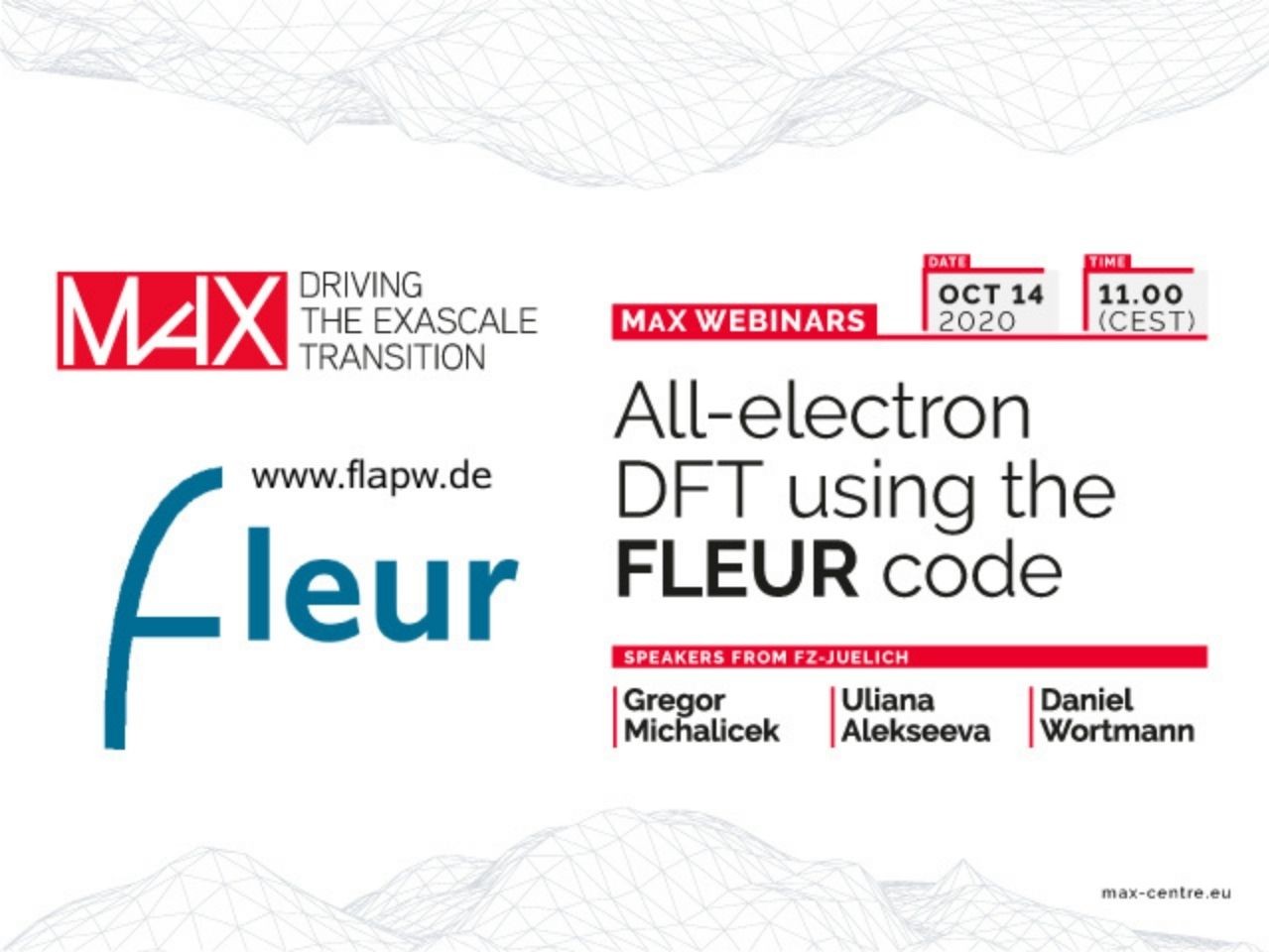All-electron DFT using the FLEUR code

On 14th of October 2020 at 11 AM (CEST), the 6th Webinar of a series presenting the most recent developments of the MAX flagship codes entitled "All-electron DFT using the FLEUR code"(opens in new window) will be held, featuring the FLEUR code.
Register now!(opens in new window)
The webinar will focus on the basic features and fundamentals of the FLEUR code. We will include an overview of the different types of simulations possible with the code, including its interfaces to other methods. The use of FLEUR on modern HPC systems including Tier-0 PRACE systems will also be covered in our presentation. Additionally, we aim at providing hints and instructions useful for deploying FLEUR on different systems, to overcome typical challenges and to identify the requirements for the usage of the code. Finally, we will point at possible further sources of information, documentation and support processes and outline our future plans.
Visit the official webinar page to register and see the exciting agenda(opens in new window) prepared for its attendees.
------
MaX (MAterials design at the eXascale)(opens in new window) is a European Centre of Excellence which enables materials modelling, simulations, discovery and design at the frontiers of the current and future High Performance Computing (HPC), High Throughput Computing (HTC) and data analytics technologies.
www.max-centre.eu I www.linkedin.com/company/max-centre I @max_center2(opens in new window)
Keywords
High-Performance Computing (HPC), Materials design, materials modelling, materials simulation, High Throughput Computing (HTC), materials science, data analytics, computational algorithms


